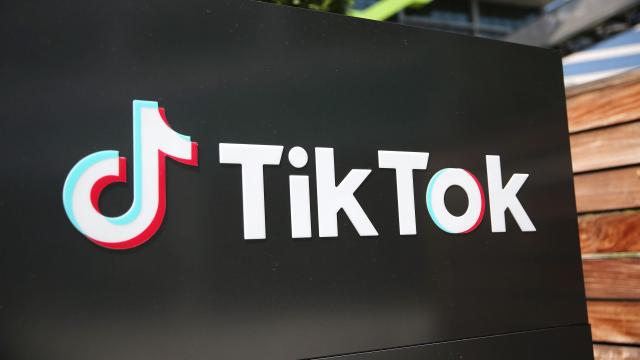The lawsuit lodged against Montana’s historic TikTok ban by influencers in the state earlier last month may not have a grassroots effort. What seemed to be a creator-led legal rebuke was actually financed by TikTok itself.
Several of the creators who acted as the public face of the class action suit revealed TikTok had covered their legal expenses in a New York Times article published Tuesday evening. The creators claim TikTok bankrolled the suit but didn’t directly pay them for their involvement. Each of the creators listed on the suit have grown successful businesses and communities on the app. If Montana’s law is allowed to take effect in January 2024, their lives could be radically upended. Carly Goddard, a young mother and one of the influencers involved, told Gizmodo she would have to pack up and leave the state if the ban becomes law.
TikTok did not immediately respond to Gizmodo’s request for comment but it didn’t deny financing the creator’s lawsuit in a statement sent to the Times. “We support our creators in fighting for their constitutional rights,” a TikTok spokesperson said. “Many creators have expressed major concerns both privately and publicly about the potential impact of the Montana law on their livelihoods.”
How did TikTok get involved?
Several of the creators named in the suit told the Times they were approached by TikTok lawyers and asked if they wanted to be named plaintiffs in the suit. TikTok reportedly sweetened the deal by telling the creators they wouldn’t have to pay Davis Wright Tremaine, the law firm that would represent them. Many of the creators eventually named on the suit had already spoken out against Montana’s ban on their own TikTok accounts prior to any outreach from the company.
“I was like, you know what, I would love to help out with this because I already don’t like it, I’m already advocating for it on my channel,” Heather DiRocco, one of the creators, told the Times. “I’d love to be a part of this so it can go further than what I can get it to do.” Another creator named Samantha Alario said she had spoken out publicly against the law for a week before being approached by TikTok.
Ambika Kumar, the lead attorney for the creators, told The Times TikTok’s involvement was “irrelevant to the legal merits of the case.” Davis Wright Tremaine did not immediately respond to Gizmodo’s request for comment.
This isn’t the first time Tik Tok raised eyeballs for subtly throwing money behind seemingly organic creator efforts to ban the app. Earlier this year, the company covered the travel expenses for around 30 creators from across the country who gathered outside the nation’s capitol to fiercely oppose growing lawmaker calls for a nationwide ban. TikTok also referenced the creator lawsuit in its own separate suit launched against the state of Montana without clearly informing readers its funds were behind both.
None of these tactics, it should be noted, are necessarily unique to TikTok, nor are they illegal. Tech companies, or trade groups representing them, regularly play a hand in orchestrating legal opposition to bogus bills on the state and federal levels. Net Choice, which lists Meta and Google among its members for example, is spearheading lawsuits against a pair of so-called “anti-deplatforming laws” in Texas and Florida bound for the Supreme Court. Still, the less-than-transparent approach TikTok took likely won’t help its dwindling reputation among sceptical lawmakers and an increasingly wary public.
